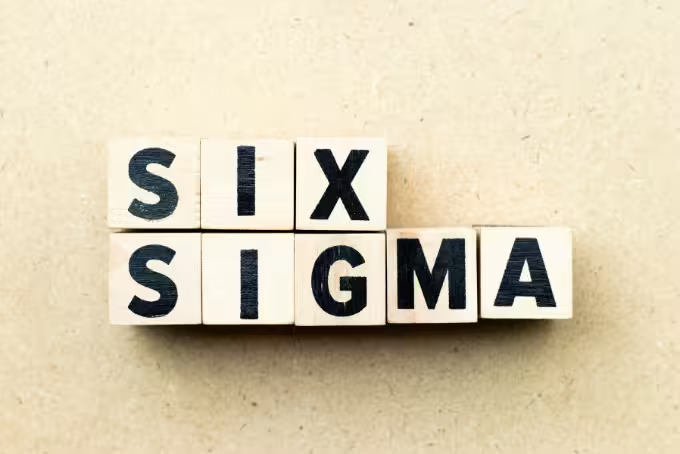Care planning and record-keeping aren’t just bureaucratic duties—they are the foundation of safe, effective, and person-centred care. According to NHS Digital, 85% of medical errors involve poor documentation. When done right, these practices protect service users, support care teams, and ensure compliance with UK healthcare regulations.
Whether you’re a care assistant, support worker, or aspiring professional, this comprehensive guide will give you the knowledge and tools to plan, record, and improve the quality of care across health and social care settings.
✅ What Is Care Planning in Health and Social Care?
Care planning is a structured process that involves identifying an individual’s care needs and outlining the actions required to meet those needs effectively. It ensures the delivery of consistent, personalised, and coordinated care.
📌 Key Components:
-
Assessment: Identify physical, emotional, social, and psychological needs
-
Planning: Define goals, strategies, and the resources required
-
Implementation: Deliver care based on the plan
-
Review: Monitor outcomes and adjust the plan as needed
📖 Example:
A patient with mobility issues may have a care plan that includes morning physiotherapy, assistance with hygiene, and the use of mobility aids such as walkers.
📝 What Should Be Included in a Care Plan?
A good care plan documents everything needed to provide safe and tailored support:
-
Personal Details: Name, DOB, next of kin
-
Health History: Conditions, surgeries, ongoing treatments
-
Current Medications: Dosage, frequency, allergies
-
Care Preferences: Religious practices, dietary needs
-
Daily Support Needs: Personal care, mobility, communication
-
Goals: Rehabilitation, social interaction, independence
-
Emergency Protocols: What to do during health crises
📅 You can create digital or paper-based templates using NHS guidelines: Care and Support Plan Template – NHS England
📂 What Is Record-Keeping in Health and Social Care?
Record-keeping is the accurate documentation of the support provided, changes in condition, communication, incidents, and outcomes. It ensures continuity of care and legal protection.
📂 Types of Records:
-
Medication Administration Records (MAR charts)
-
Daily care notes
-
Incident reports
-
Consent and communication logs
-
Risk assessments
📖 Example:
During a home visit, a carer notes in the daily log that the patient declined food due to nausea. This is later shared with the GP to adjust medication.
📈 Why Is Record-Keeping Important?
-
Continuity of Care: Multiple caregivers can follow the same plan
-
Safety: Documenting allergies, reactions, or changes avoids risk
-
Accountability: Clear records help in investigations and legal cases
-
Monitoring Outcomes: Review data to improve quality of care
🔗 GOV.UK – Health and Social Care Act 2008 (Regulated Activities)
🔟 Ten Principles of Good Record-Keeping
1. Be Prompt – Record soon after care is delivered
2. Be Accurate – Stick to facts, not assumptions
3. Use Plain English – Avoid jargon
4. Stay Professional – Keep language respectful
5. Ensure Relevance – Only include necessary information
6. Keep it Confidential – Store securely, share only with authorised people
7. Use a Consistent Format – Stick to templates and guidelines
8. Date & Sign Entries – Every time
9. Avoid Alterations – Cross out errors with a single line, sign, and re-enter
10. Review Regularly – Check plans are up-to-date and still applicable
🛠️ Practical Guidelines for Writing and Maintaining Records
-
Always document who, what, where, when, and why
-
Use objective language (e.g., “Patient said they felt dizzy” not “Patient looked unwell”)
-
Maintain legibility and structure
-
Store records according to GDPR and organisational policies
📌 Example: Instead of “Mr oliver was upset,” write “Mr oliver cried and expressed concern about missing his medication.”
📋 Legal Requirements and Standards
-
-
Data Protection Act 2018 / GDPR – Manage personal data lawfully
-
NMC Code of Practice – Nurses and midwives must keep accurate records
-
Health and Social Care Act – Regulates conduct and care provision
-
CQC Standards – Emphasise well-led, safe, effective care
-
💻 Digital Record-Keeping & EHR Systems
As part of the UK’s push for digital transformation, organisations like NHSX aim to standardise and enhance digital care records across all services. This means carers must increasingly adapt to Electronic Health Record (EHR) systems, which improve data sharing, accessibility, and consistency.
📌 What You Should Know:
-
Get trained in using EHR software such as EMIS, SystmOne, or CareDocs
-
Document in real-time to reduce errors and duplication
-
Understand access rights and privacy settings
-
Know how to log actions securely and track updates
By embracing digital tools, care workers not only comply with NHS long-term goals but also streamline communication and improve care quality across multidisciplinary teams.
📊 EHR Documentation Checklist for Care Workers
Use this checklist to ensure accurate and compliant digital record-keeping:
-
☑️ Log in securely with your individual credentials
-
☑️ Confirm the correct patient profile before entering data
-
☑️ Document care actions immediately after delivery
-
☑️ Use clear, factual, and professional language
-
☑️ Include time stamps and author initials
-
☑️ Double-check medication entries and dosages
-
☑️ Record any patient observations or reactions
-
☑️ Follow privacy rules—never leave the system open unattended
-
☑️ Upload supporting documents or assessments as required
-
☑️ Log out fully after use
🧠 Tip: Many providers use systems like SystmOne, EMIS, or CareDocs—if you’re new to EHRs, consider CPD training to build digital confidence.
📉 Consequences of Inadequate Record-Keeping
-
Missed or duplicated medication
-
Delayed treatments
-
Increased risk of abuse
-
Legal action and CQC penalties
-
Damaged trust with families and regulators
Example: In 2021, a care home was fined over £50,000 after a patient with diabetes was hospitalised due to missing insulin doses—an error caused by poor documentation.
👤 Who Is Responsible for Record Management?
-
All frontline staff – Must document care provided
-
Managers & Leads – Ensure compliance and review quality
-
IT/Admin Team – Maintain secure access and data integrity
Organisations should train all employees in record-keeping from day one.
💼 Healthcare Support Worker Jobs & Record Duties
Healthcare support workers are responsible for observing and recording:
-
Nutrition and hydration
-
Mobility support
-
Toileting and hygiene
-
Communication needs
These notes are critical for ongoing reviews and coordination with other professionals.
📚 Why Enrol in a Care Planning and Record-Keeping Course?
A short, flexible online course can:
-
Boost your career prospects
-
Improve documentation quality
-
Enhance patient safety
-
Help meet CQC standards
🎓 Apex Learning’s Health & Social Care courses are CPD-certified and trusted by over 300,000 UK learners.
❓ Frequently Asked Questions (FAQs)
How long do records need to be kept?
Typically 8 years after last treatment or 10 years after death (for EHR systems).
Which legislation covers record-keeping?
The Data Protection Act, Health and Social Care Act 2008, and GDPR.
How often should care plans be reviewed?
At least every 6 months or whenever the patient’s condition changes.
What is the difference between a care plan and a support plan?
A care plan focuses on medical and daily needs, while a support plan may include social inclusion, housing, or life skills.
What is nursing record-keeping?
It’s the documentation nurses make to track care, treatments, assessments, and observations. It’s used by multidisciplinary teams.
🚀 Final Takeaway
Effective care planning and record-keeping improve lives, reduce risks, and support legal and ethical standards in health and social care.
By applying best practices, following UK regulations, and enrolling in expert-led courses, you not only elevate your own professional value—but contribute to safer, more compassionate care for those who need it most.





 " alt="What Is Six Sigma? | Six Sigma Explained for Beginners" />
" alt="What Is Six Sigma? | Six Sigma Explained for Beginners" />
 " alt="How to Become a Teaching Assistant in the UK" />
" alt="How to Become a Teaching Assistant in the UK" />
 " alt="Maintaining Patient Confidentiality: A Nursing Assistant’s Duty" />
" alt="Maintaining Patient Confidentiality: A Nursing Assistant’s Duty" />

